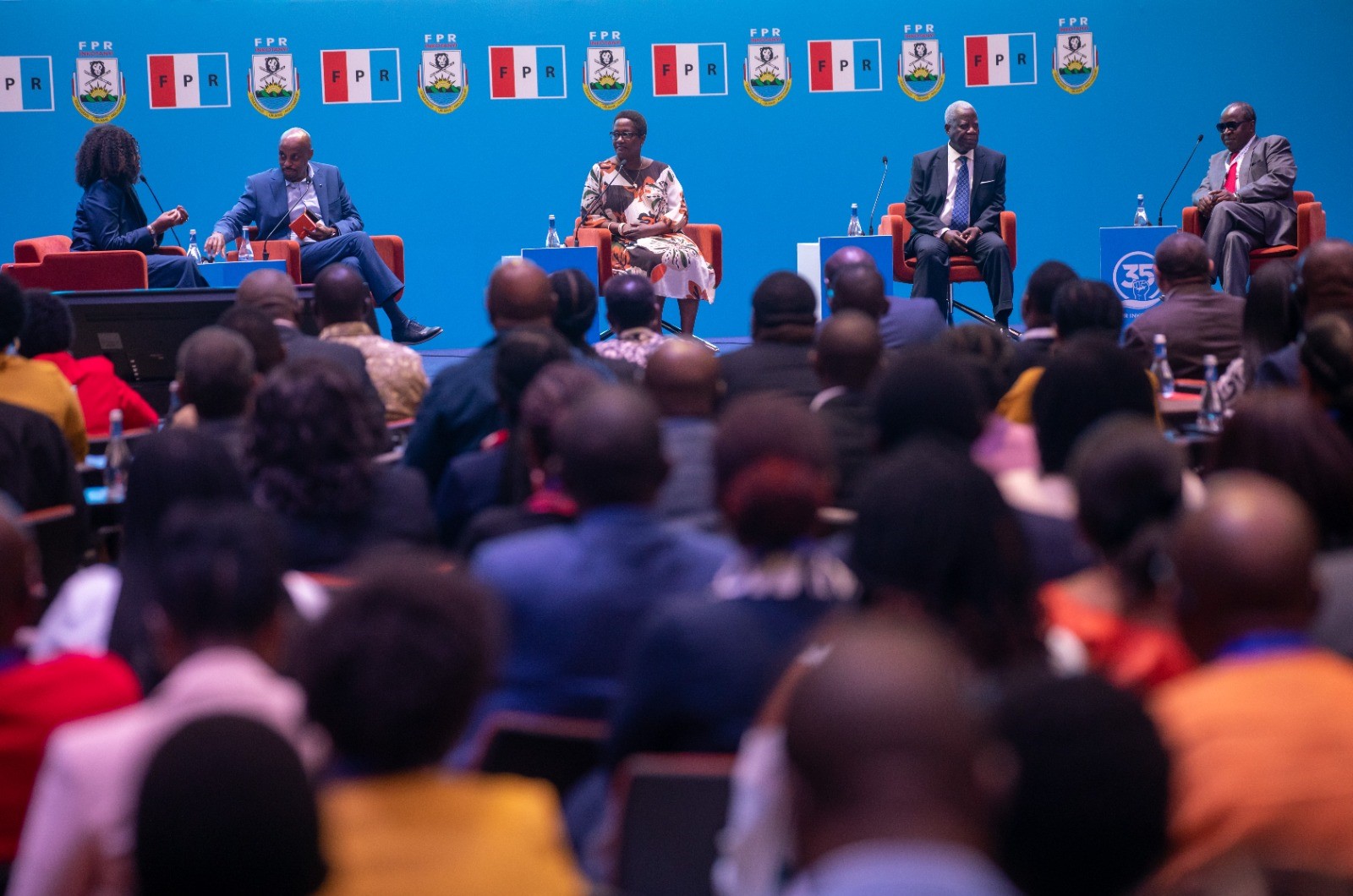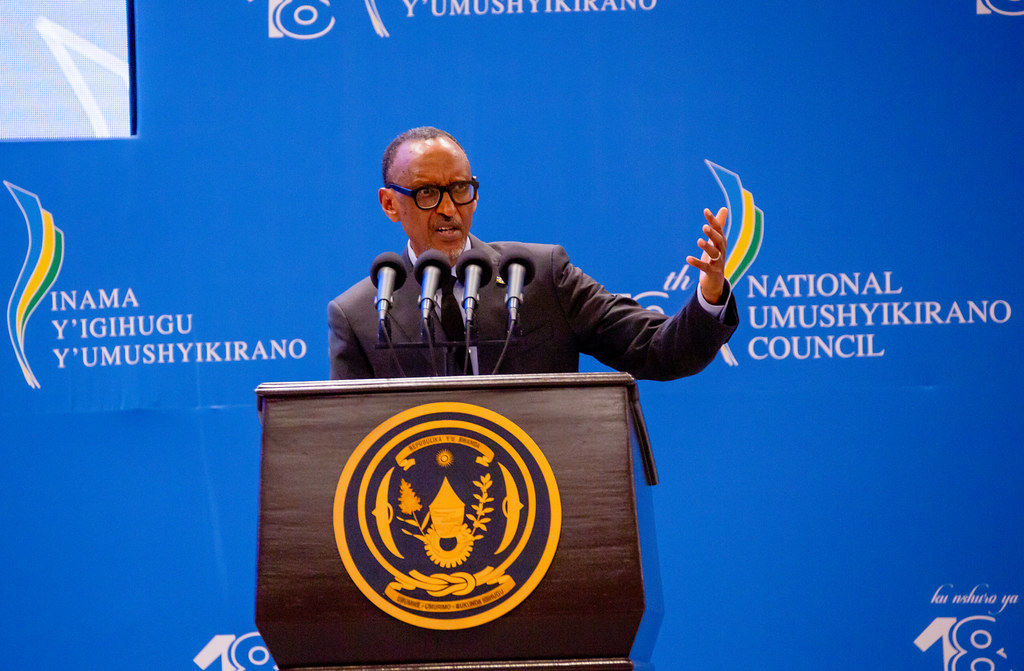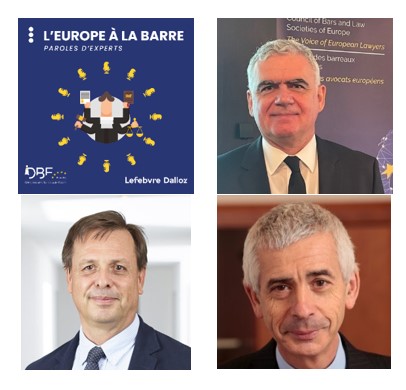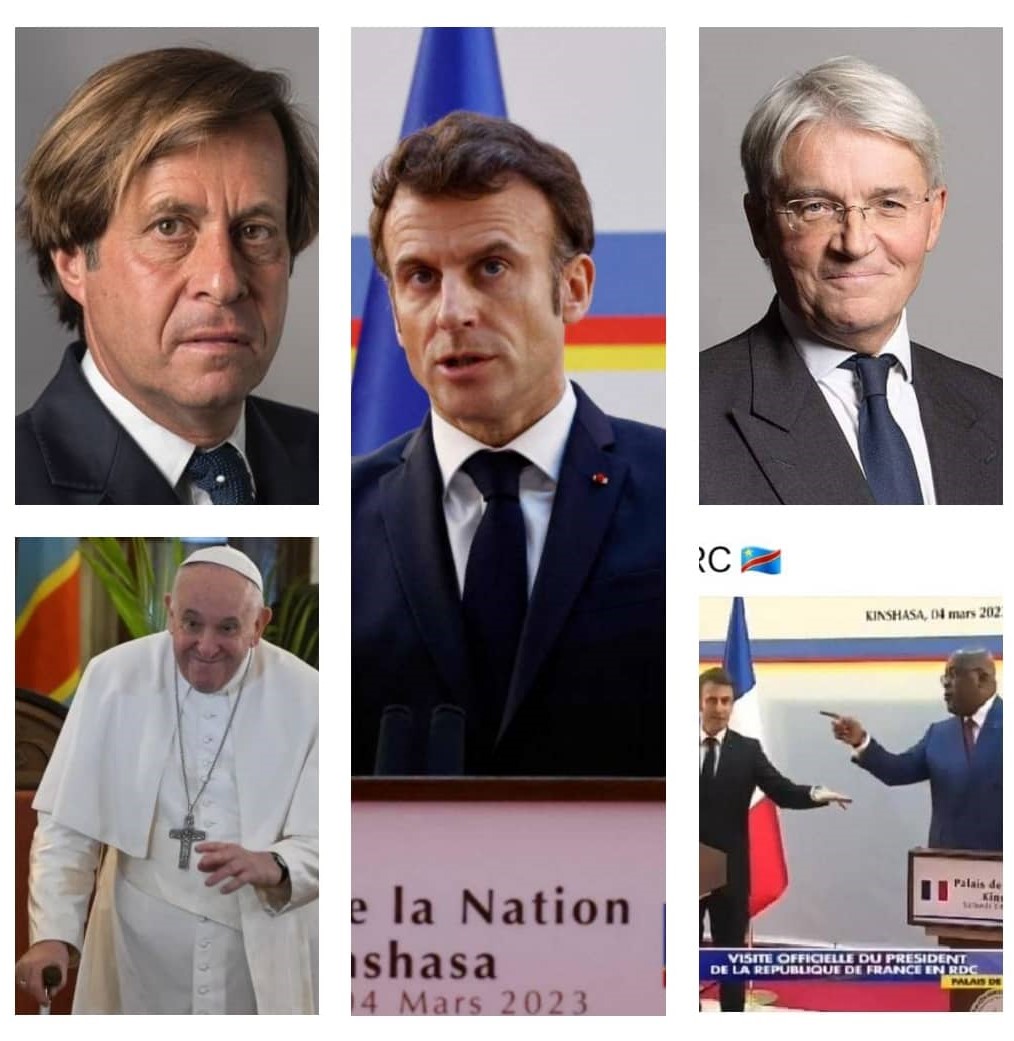Regional
Rwanda: RPF's top 7 achievements after ending the 1994 Genocide against the Tutsi

The Rwanda
Patriotic Front (RPF) stopped the 1994 genocide against the Tutsi in Rwanda where
more than one million people were killed in one hundred days. This was the
fastest mass murder ever recorded in modern history. The new government led by
RPF then moved the country from the brinks of an almost failed state to one of
the rapid growing economies on the continent.
Although
Rwanda still bears the scars of genocide, it is a successful model of post
genocide recovery and transformation. It is not easy to list all of the RPF’s achievements
as the list may be endless. However, here are seven major wins by the ruling
party within three decades after Genocide.
1.
Unity
and reconciliation
In
the aftermath of the Genocide, the heavy task ever was to reunite Rwandans who
were divided by bad leadership using ethnicity: Hutu,Tutsi and Twa tags. Nation
building and reconciliation after the atrocities committed during the Genocide
and the divisive politics of bad leadership past was the RPF’s major task and
the party did not fail.
While
the Tutsi as victims of the Genocide were experiencing post-traumatic stress disorders,
some Hutu were afraid of alleged ‘revenge’ or being tried and hence end up in
jail. The Gacaca courts not only provided justice but also reconciled the
perpetrators and the victims. Identity
cards that profiled people based on ethnicity were disbanded.
The
government initiated a program called Ndi Umunyarwanda which means “Iam
a Rwandan,” which helped build a national identity based on trust and dignity.
Ndi
Umunyarwanda aims to strengthen unity and reconciliation among Rwandans by
providing a forum to talk about the causes and consequences of the genocide as
well as what it means to be a Rwandan. The National Unity and Reconciliation
Commission (NURC) was also put in place to eradicate divisionism and
discrimination. The 2020 Rwanda Reconciliation Barometer indicates that
Rwanda’s reconciliation status stood at 98.3 per cent which is an indication
that unity and reconciliation has largely been achieved.
On
April 1, at the start of a two-day RPF-Inkotanyi International Conference
attended by many from across the continent, Senegalese novelist,
journalist and screenwriter, Boris Boubacar Diop, said: “The Rwanda story is
particularly interesting and intriguing because it has helped solve the
question of the leadership vacuum that Africa has faced for long.”
2.
Peace
and Security
The RPF
made peace
and security its priority. From the 1950s to 1994, Rwandans experienced
ethnic discrimination which led to many fleeing to neighboring countries while
others were brutally killed. This violence with impunity culminated into the
1994 genocide against the Tutsi.
The RPF
invested more in restoring peace and security in a devastated country. It has
put considerable efforts into ensuring the security
and safety of the country's territory by building competent and
professional security organs. According to the 9th edition of Rwanda
Governance Score card 2022, safety and decurity, previously maintain the first position
with a score of 95.53%.
The
2022 survey by Usebounce.com ranked Rwanda as the safest country in Africa and
the sixth globally for solo travelers, based on the score of the crime index,
and the score of the security index.
Today,
Rwanda has gone beyond its borders and provided military support in countries affected
by war and terrorism like Mozambique, South Sudan and Central African Republic.
The country is ranked fourth among contributors of troops to United Nations
peacekeeping missions globally, as of December 2022.
3.
Social
welfare
The
party strived to provide adequate standard of living for every Rwandan, so that
they can grow into self-reliant and capable citizen through a stable society,
quality education and healthcare.
Life
expectancy to Rwandans improved from 49 years in 2000 to 69.6 years in 2022. Poverty
fell from 77 per cent in 2001 to 55 per cent in 2017, maternal mortality ratio
has declined to 203 deaths per 100,000 live births in 2020 down from 1,071 in
2000 while under-five mortality dropped to 45 deaths per 1,000 in 2020 from 196
deaths in 2000.
Stunting
among children under the age of 5 dropped from 47.4 per cent in 2000 to 33 per
cent in 2020.
Rwanda
has reached Universal Health Coverage status as recognized by the World Health
Organization, where all people have access to the health services they need,
when and where they need them, without financial hardship.
In
sub-Saharan Africa, Rwanda is one of the top-performing countries in education
with 98 per cent of children enrolled in primary school as UNICEF notes. More
than 70 per cent of children with disabilities in the country are enrolled in
primary school.
The
National Institute of Statistics of Rwanda shows that 82 per cent of private
households in Rwanda drink water from improved sources.
4.
Rapid
economic growth
The
RPF has been the engine of Rwanda’s economic growth. The major sectors of the economy
are tourism, service, agriculture, industries, arts and crafts, investment, and
trade.
Despite
having to recover more recently from the Covid-19 fallout and the repercussions
of the war in Ukraine, Rwanda is one of the most successful and fastest growing
economies in Africa.
Rwanda
aspires to Middle Income Country status by 2035 and High-Income Country status
by 2050. It plans to achieve this through a series of seven-year National Strategies
for Transformation (NST), underpinned by sectoral strategies focused on meeting
the UN’s Sustainable Development Goals.
The
NST1 followed two five-year Economic Development and Poverty Reduction
Strategies, EDPRS (2008–12) and EDPRS-2 (2013–18), during which Rwanda
experienced robust economic and social performance.
Growth
averaged 7.2 per cent a year over the decade to 2019, while per capita gross domestic
product (GDP) grew at 5 per cent.
5.
Zero
tolerance to corruption
The RPF
has zero tolerance to corruption and ineptitude.
Leaders on all levels who are accused of
corruption, mismanagement of public resources or professional malpractices have
been publicly suspended and some arrested and held accountable.
“Government is not that political animal that
is there to eat up the people but one that serves the people,” said President
Paul Kagame.
The
2022 Corruption Perceptions Index of Transparency International ranked Rwanda
as the fourth least corrupt country in Africa, while Rwanda Governance Score
Card 2022, ranks Anti-Corruption, Transparency and Accountability at 87.31%.
Cameroonian
Jacob Diko Mukete who previously served as the African Development Bank's
country representative in Rwanda understands the environment in which the
country has operated and trudged on. He said: “We must commend RPF-Inkotanyi
for being one of the few political organizations that has maintained
ideological purity.”
6.
Women
empowerment
The
ruling party has made Rwanda recognized worldwide in empowering women, a move
that was next to impossible for previous republics.
Rwanda
stands out globally for its efforts in advancing gender equality and women's
empowerment, particularly in political participation.
Nearly
two thirds of its parliamentary seats and 52 per cent of cabinet positions are
held by women. Significant progress has also been made in many sectors.
The
Global Gender Gap Index 2022 ranked Rwanda sixth based on current state and evolution
of gender parity across four key dimensions (Economic Participation and Opportunity,
Educational Attainment, Health and Survival, and Political Empowerment).
7.
Good
governance
The Government of Rwanda defines good governance as "the
exercise of political, economic and administrative authority to manage the
nation’s affairs and the complex mechanisms, processes, relationships and
institutions as well as leadership behaviour through which citizens articulate
their interests, exercise their rights and obligations and meditate their
differences.”
The
RPF-led government promoted good governance with rule of law, respect for human
rights and unity among Rwandans, while promoting gender equality.
“For
me it was clear from the beginning that RPF knew what was good for Rwanda, in
terms of governance, education, health, environment. The RPF also responded
very effectively to emerging global challenges,” said Amb. Ami Ramadhan Mpungwe,
the Chairman of the Tanzanian Chamber of Minerals and Energy.
The
party holds democratic principles including the citizens' right to choose their
leaders through elections, decentralization and devolution of power enabling
people at the grassroots level to influence the decisions which affect their
lives.
Rwanda’s
democracy and governance is people centered, putting the interests of the
people first.
The
party promoted the entrenchment of transparency and accountability.
The
RPF is revered by many but Rwandans belong to a dozen political parties in
their country, contrary to the single party system in previous republics.
According
to Ugandan political scientist, Frederick Golooba-Mutebi: “What Rwanda has
taught us is finding common ground among political actors.
“Finding
this common ground does not mean you do not disagree, but the need to find
consensus.”
Marie-Chantal
Nduhungirehe, a Rwandan who saw her country go through the worst of a genocide
and then rise from the ashes, had decided to never be part of any political
organization.
But
the RPF philosophy changed her mind.
She
said: “It’s RPF’s philosophy of unity and staying together that attracted
me. Having grown up in Rwanda, that aspect was non-existent.”







.jpeg-20230326115316000000.jpeg)